Chaucer
This section is about Geoffrey Chaucer. Here you will find a short biography of Geoffrey Chaucer, the author of the Canterbury Tales. The article was adapted from the Popular Cyclopedia.
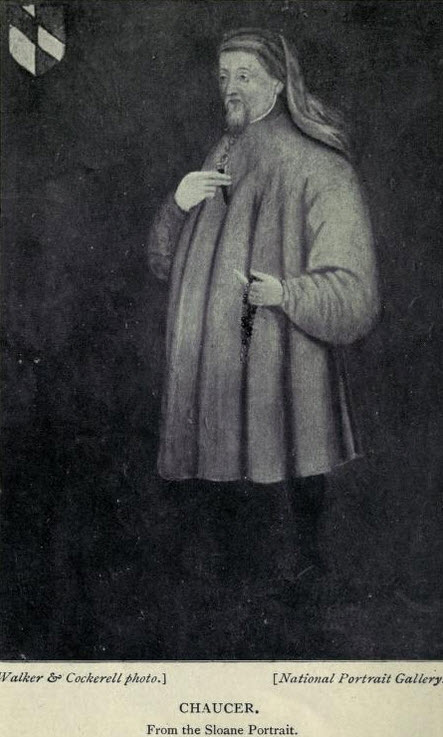
Chaucer Facts
- Chaucer born 1340
- Wrote the Canterbury Tales in Middle English
- Considered the Father of English Literature
- In Addition to being a celebrated poet, Chaucer was a soldier, courtier, and perhaps even an alchemist
- He was the first poet granted the honor of being buried in Westminster Abbey. He has since been joined by such literary greats as Milton and Dickens.
Chaucer Biography
Geoffrey Chaucer, a celebrated English poet, was born at London, England, about 1340 and died there, Oct. 25, 1400. Of his childhood nothing is certainly known except that he was the son of a vintner.
Chaucer's date of birth is based largely on the record of a trial held in 1368, at which Chaucer testified. In the court record he is described as being forty years of age. However it is known that the ages of some of the other witnesses at the same trial are misstated, so it is not certain whether Chaucer's age was stated correctly.
In 1359 he served in the army of King Edward III during his invasion of France, was made prisoner by the French. Chaucer was eventually ransomed by the English King. The next positive mention of him occurs in 1366, when he was one of the squires of the King, and was already married to a sister of Katharine Swynford, the mistress and subsequently the wife of the King's son, John of Gaunt, Duke of Lancaster. This marriage might have placed his descendants on the English throne.
From 1370 to 1378, Chaucer carried out a number of diplomatic missions on behalf of the King. In 1372 Chaucer was one of the envoys sent to Genoa to arrange a commercial treaty with that republic. Under the powerful protection of John of Gaunt the fortunes of Chaucer flourished for several years; he held lucrative posts in the customs service, and in 1386 was returned to Parliament for the shire of Kent. At the close of this year, John of Gaunt being employed on the Continent, Chaucer was removed from his post in the customs, and appears to have fallen into financial difficulty. He is supposed to have written “The Canterbury Tales” at this period.
John of Gaunt, returning to England, took up the cause of Chaucer, procured for him the appointment of Clerk of the King's Works, and furnished him an annuity of £20. Still later, and toward the end of his life, Chaucer received from the King a grant of a tun of wine a year, and a pension of 40 marks. Chaucer was buried in Westminster Abbey, being the first of the long line of poets to whom that honor has been awarded.
Chaucer wrote several important prose works, among which is a translation of Boethius's, the “Consolations of Philosophy.” His principal poems are “The Court of Love” and “The Flower and The Leaf,” the genuineness of which has been called in question; “The Romaunt of the Rose,” “Troilus and Creside,” “The Assembly of Foules,” “ The Booke of the Dutchess,” “ The House of Fame,” “Chaucer's Dream,” “The Legend of Good Women,” “The Complaint of Mars and Venus,” “The Cuckow and the Nightingale,” and “The Canterbury Tales,” upon which his fame mainly rests.
The chief work of Chaucer, and one which has secured, him an immortal and still brightening fame, is The Canterbury Tales, a series of about twenty stories narrated by pilgrims to the shrine of St. Thomas. The persons and characters of the pilgrims are sketched with marvelous spirit in an introductory prologue, and both here and in the tales there is displayed a dramatic power of the comic sort second only, and scarcely second, to that of Shakespeare. Troilus and Cresside, The Parliament of Fowls, the Book of the Duchess (also known as Chaucer's Dream), and The Legend of Good Women are also admirable poems. The Canterbury Tales were excellently edited by Thomas Tyrwhitt in four volumes, to which a glossary was added in 1778.
Of late years Chaucer has received particular attention in England, America, and also in Germany. The Chaucer Society, founded in 1868, has printed seven texts of The Canterbury Tales, four of Troilus. and all, or nearly all, of the extant text s of the minor poems. The minor poems and The Legend of Good Women have for the first time been critically edited (Oxford. 1888 - 89) by the Rev. W. W. Skeat. proceeding an edition of The (Canterbury Tales and of Troilus. The three small volumes of selections from The Canterbury Tales. published in the Clarendon Press Series (edited by Skeat and Morris), have given an intelligent introduction to Chaucer to many thousands of young people.
For biography, The Life of Chaucer by Sir Harris Nicolas made great additions to our knowledge. Prof. T. R. Lounsbury's Studies in Chaucer, 3 vols. (New York, 1892), embracing papers on Chaucer's life, historical and legendary, his text, the genuine and the spurious works, his learning, genius, etc., is a work of capital importance.
Chaucer's had one son, Thomas Chaucer, who followed in his father's footsteps and became a successful administrator and politician, serving as speaker of the House of Commons.
“Canterbury Tale Summaries
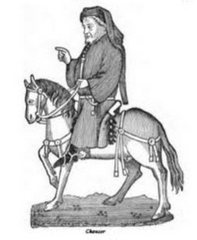
Geoffrey Chaucer
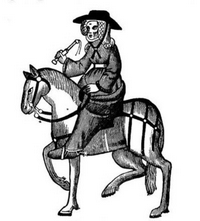
The Wife of Bath's Tale
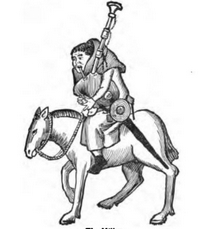
The Miller's Tale
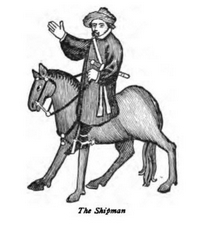
The Shipman's Tale
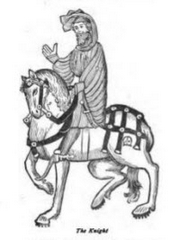
The Knight's Tale
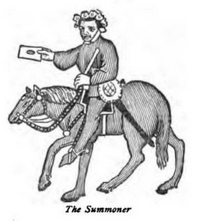
The Summoner's Tale
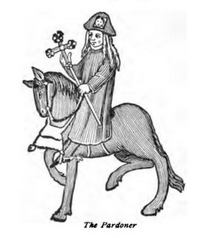
The Pardoner's Tale
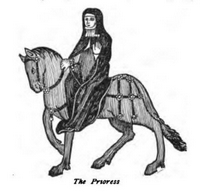
The Prioress's Tale
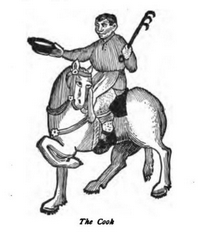
The Cook's Tale
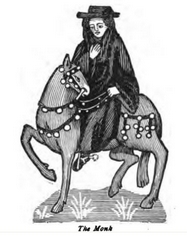
The Monk's Tale
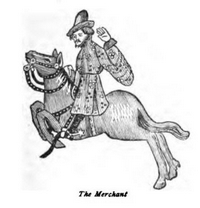
The Merchant's Tale
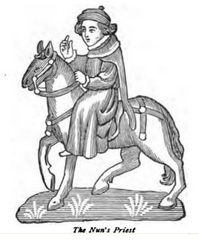
The Nun's Priest's Tale
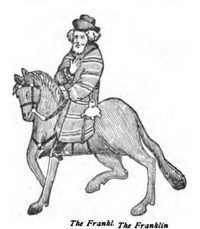
The Franklin's Tale
Main Page | Site Updates | Privacy Policy | Site Map | XML Map | RSS | Contact | About
Canterbury Tales
